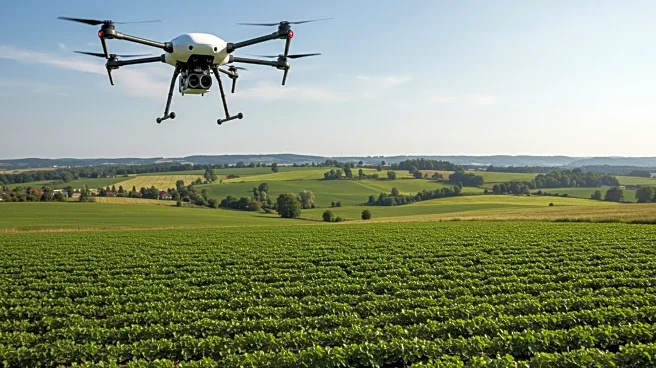What's Happening?
AI technologies are transforming agriculture by enhancing crop yields and resource management. Over 50% of farmers using AI tools report increased yields within two seasons. AI-driven precision agriculture optimizes water, fertilizer, and pesticide use, reducing waste and environmental impact. Satellite imagery and AI algorithms provide real-time crop health assessments, enabling early detection of stress and disease. Platforms like Farmonaut offer satellite-driven insights and blockchain traceability, ensuring transparency in supply chains. These advancements address labor shortages, climate variability, and the need for higher productivity.
Why It's Important?
AI's integration into agriculture is crucial for addressing global challenges such as food security, climate change, and resource scarcity. By improving efficiency and sustainability, AI helps farmers adapt to environmental threats and optimize their operations. The technology supports rural communities by stabilizing economies and fostering innovation. As agriculture remains vital for food production and economic stability, AI-driven practices ensure resilience and sustainability, benefiting both farmers and consumers.
What's Next?
The continued adoption of AI in agriculture is expected to enhance precision farming, resource management, and supply chain transparency. As more farmers integrate AI tools, the industry may see increased collaboration between tech companies and agricultural stakeholders. Future developments could focus on expanding AI capabilities to address emerging challenges, such as climate change adaptation and biodiversity conservation. Policymakers may consider supporting AI initiatives to promote sustainable agricultural practices.
Beyond the Headlines
AI's role in agriculture raises ethical considerations regarding data privacy and the digital divide. Ensuring equitable access to AI technologies for smallholder and remote farmers is essential for democratizing agricultural knowledge. The integration of AI also prompts discussions on the balance between technological advancement and traditional farming practices, highlighting the need for inclusive and sustainable development.









